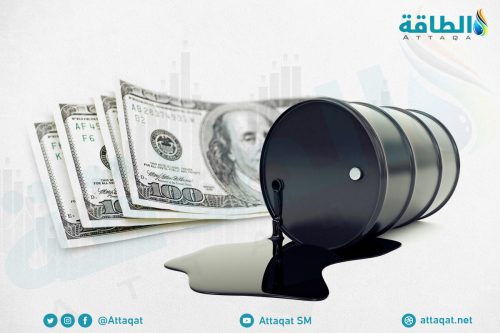Crude oil prices fell about 1%, during today’s trading, Monday, February 13 (2023), amid fears of an economic recession.
Investors focused on short-term demand concerns stemming from crucial US inflation data and refinery maintenance in Asia and the US.
Crude oil prices today
By 07:33 a.m. GMT (10:33 a.m. Mecca time), benchmark Brent crude futures – for April delivery 2023 – fell by 0.96%, to $85.56 a barrel.
The price of US West Texas crude futures – delivery in March 2023 – decreased by 1.08%, to $ 78.86 a barrel, according to data viewed by the specialized energy platform.
Crude oil prices ended their trading, on Friday, February 10, with an increase of more than 2%, to achieve weekly gains.
During the past week, both benchmarks (Brent and West Texas Intermediate) achieved weekly gains of 8.1% and 8.6%, respectively.
Oil market conditions
“Crude oil prices are falling as traders anticipate the possibility of weaker demand outlook for crude oil,” said Edward Moya, senior analyst at OANDA, referring to US consumer price data due for release in February.
He noted that the pivotal inflation report may force the Fed to tighten policy more aggressively,” Reuters reported.
“This week could offer a make-or-break moment in how bad the recession is for Wall Street prices,” he added.
the US Federal Reserve raised interest rates to rein in inflation; This led to fears that this step will slow economic activity and demand for oil.
Azerbaijani oil exports
In addition, the resumption of Azerbaijani oil exports on Sunday at Turkey’s Ceyhan terminal also eased supply concerns, said CMC Markets analyst Tina Ting.
The station was damaged in the devastating earthquakes that hit Turkey and Syria last week. It is the storage and loading point for pipelines carrying oil from Azerbaijan and Iraq.
Crude oil prices rose on Friday after Russia, the world’s third-largest oil producer, said it would cut crude production in March by 500,000 barrels per day, or about 5% of output, in response to Western restrictions on its exports.
Chinese demand
The rise of both Brent and West Texas Intermediate contracts, last week, came with the support of optimism about the recovery of demand in China, the largest importer of crude in the world and the second consumer of oil, after the lifting of Corona restrictions in December.
Recovery in oil demand in China curbed its gasoline exports in February, even though its refineries are keeping diesel shipments above 2 million tonnes.
A senior portfolio manager at Vantage 8 in Singapore, Stefano Grasso, said a 500,000 bpd cut would bring Russia back into line with its OPEC+ quota; Because Moscow is currently over-exporting.
The Organization of the Petroleum Exporting Countries (OPEC), and its allies including Russia, known as the OPEC + alliance, agreed in October to cut production by two million barrels per day, or about 2% of global demand.
OPEC officials said crude oil prices may resume their climb to $100 a barrel later this year due to recovery in Chinese demand and limited supply growth due to lack of investment, Reuters reported.
related topics..
Also read..

Leave a Reply